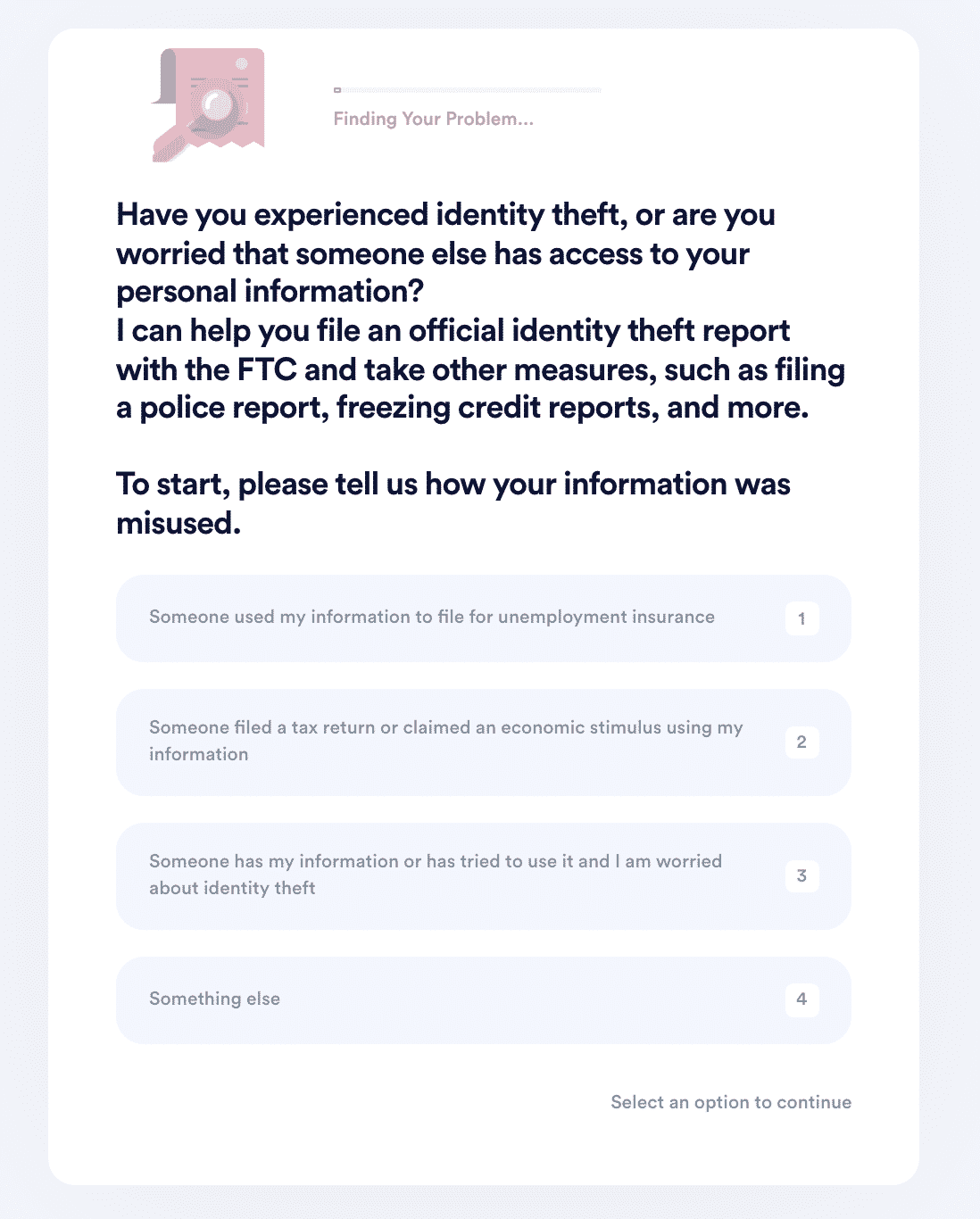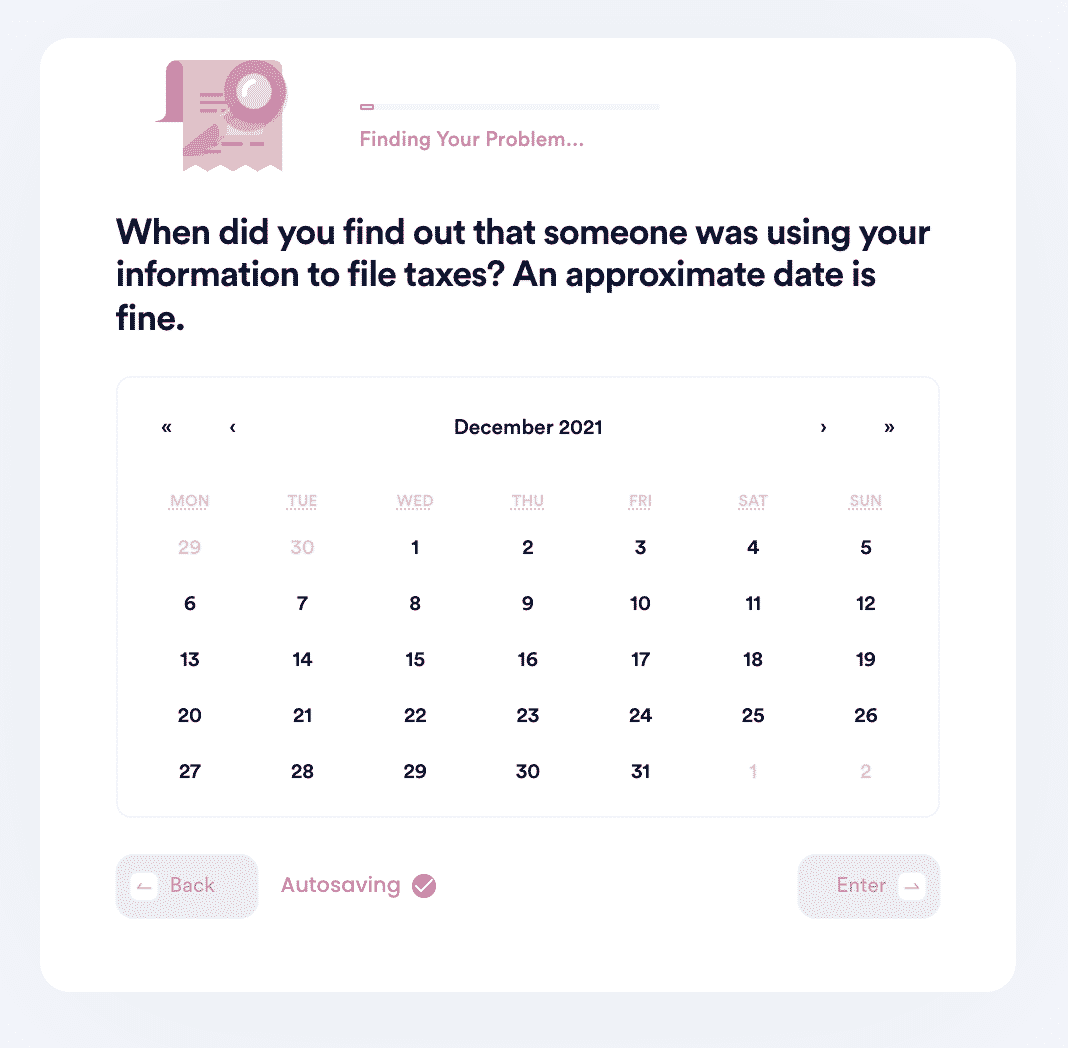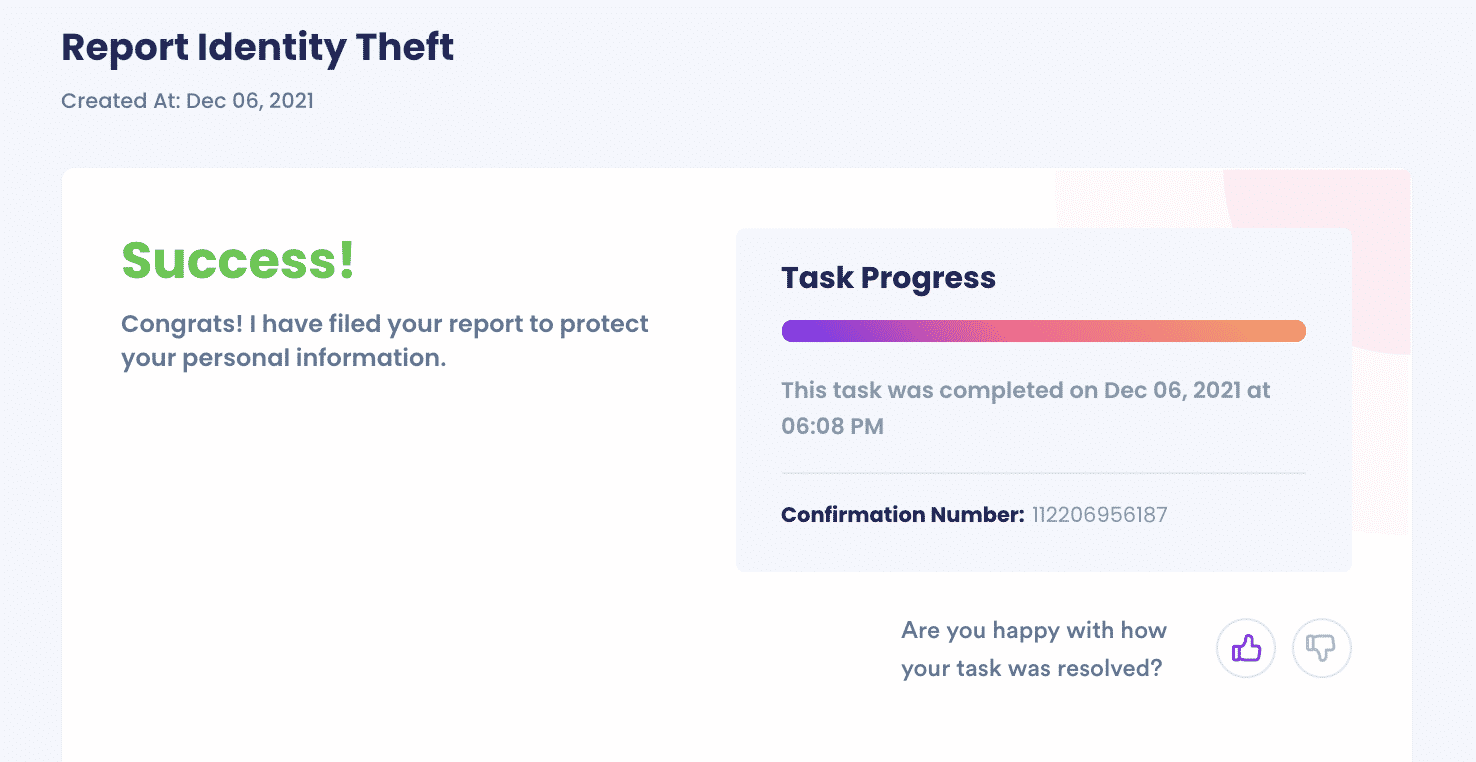How To Demand Compensation For Identity Theft And Get It
?" is a common question among those who have unfortunately been the victim of this fraud. If you are a victim of identity theft, you probably feel angry and anxious. It is a violation of your private and financial life, and can have devastating long-term ramifications, so it is important to know your rights.
Identity theft is a form of fraud that happens when an individual uses someone else's personal information (name, social security number, credit card number, etc.) to commit financial fraud for their own gain.
Whether they have opened credit cards in your name, stolen your stimulus check, illegally accessed your bank accounts, or filed for unemployment in your name, it is considered a form of identity theft. DoNotPay wants to help you understand the process of recovering from identity theft so that you are prepared to send demand letters to if possible.
Signs That You May Be a Victim of Identity Theft
Common warning signs include:
- Receiving unfamiliar bills in the mail or not receiving regular bills/mail
- Unauthorized transactions on your financial statements
- Receiving calls from fraud departments for suspicious activity
- Unauthorized purchases or changes to your online accounts
- Unfamiliar activity on your credit reports
- Calls or letters from debt collectors for unfamiliar debt
- Medical claims denied or being billed for services you didn't receive
- You cannot file income taxes because you have supposedly already filed
- Receiving notification that your information was compromised in a data breach, meaning you are at risk for identity theft
These are some of the signs that you are a potential victim of identity theft, but if you see these or other suspicious activity related to your identity and finances, it is important to act immediately.
What Should You Do if Your Identity Is Stolen?
There are several things to do to report identity theft and begin the process of recovery.
| Alert Financial Institutions | Alert every financial institution where you have accounts of any kind. They can put fraud alerts, freeze or close your accounts, or take other measures to help restore and/or protect your finances. |
| File Report with the Federal Trade Commission (FTC) | Identity theft is a federal crime, and the FTC is a federal law enforcement agency. Having a report filed with them will aid you in the process of filing police reports, dealing with identity theft claims, and in potential lawsuits. They will also provide a personalized recovery plan with tools to help you move forward. |
| File Report with Police Department | Filing a report with the local police department is beneficial if you know the individual’s identity who has committed the fraud against you, or if your identity was used in police encounters, like traffic citations or arrests. Some institutions may require that you file a police report when handling your identity theft case. Having a police report filed is beneficial for many situations. |
| Notify Credit Bureaus | Notifying the three major credit bureaus is important. It allows you to place freezes on your credit report, which may help prevent further damage. |
| Consult an Attorney | If you are planning to , you may want to find an experienced lawyer to learn your rights. This may be costly upfront, and if your finances have been drained significantly, it can be difficult and time-consuming. |
How to Demand Compensation for Identity Theft on Your Own – What You Need to Know
State laws and the specific circumstances of your case will affect who you can send demand letters to and what compensation you may be able to receive. You will need an experienced attorney who understands state and federal identity theft laws.
Suing an individual requires that you have identified and pressed charges against the perpetrator and that they are convicted. You can potentially send demand letters to companies like banks or credit card companies if it can be shown that they owe a duty of care to you (the victim). If your identity was stolen as part of a data breach, you may be able to join class action lawsuits.
You may be able to send demand letters to for negligence, fraud, breach of fiduciary duty, invasion of privacy, conversation, breach of contract, emotional distress, and other theories under state statute.
How Much Can You Send Demand Letters To for Identity Theft?
As a victim of identity theft, you may be able to send demand letters to the perpetrator in civil court. Depending on the specifics of your case, the amount you can send demand letters to for, and potentially receive, will vary.
- Compensatory damages – The most common type of award that covers financial losses caused by a crime. Since it covers financial losses, the amounts will vary considerably based on the losses you incurred.
- Punitive Damages – provides the victim with additional money awarded; used to punish the defendant
- Emotional damages – While difficult to obtain, the victim may be awarded for emotional distress caused by the fraud/theft.
How to File an Official Identity Theft Report with the FTC
Identity theft can be scary and stressful. If you feel overwhelmed about where to start, DoNotPay can help walk you through the process. Before you can send demand letters to for identity theft, you will need to file numerous reports and notify various agencies. We can help you notify the correct agencies, like the Social Security Office or the IRS as necessary, contact the credit bureaus, and file the necessary reports.
How to deal with identity theft using DoNotPay:
- Search "identity theft" on DoNotPay and select the type of incident you would like to report.

- Tell us more about the incident that occurred, including the location, date, time, financial loss, and any suspect information you may have.

- We'll identify whether you should file a FTC report, contact the IRS, freeze your credit report, contact state agencies, or file a police report. Once we guide you through the best options, we'll automatically submit the reports on your behalf!

And that's it! DoNotPay will make sure your issue gets sent to the right place. We'll upload confirmation documents to your task for you to view, and if the contacts need more information, they will reach out to you personally via email or mail.
DoNotPay Streamlines the Complaint Process for You
DoNotPay brings peace of mind because you don't have to spend hours researching identity theft or trying to fill out forms correctly. We will get you started immediately. We file reports and support you through the entire process. You can rest assured knowing we'll make the best case for you, so you can return to living your life as normally as possible.
What Else Can DoNotPay Do?
Whether your issues are related to or not, we can help you file police reports in any city, or set up fraud alerts for the major credit bureaus, and do so much more to protect you, including:
- Compensation for Victims of Crime
- Contact Government Representatives
- Chargebacks and Refunds
- Insurance Claims
Whatever issue needs to be resolved, DoNotPay is here for you.


